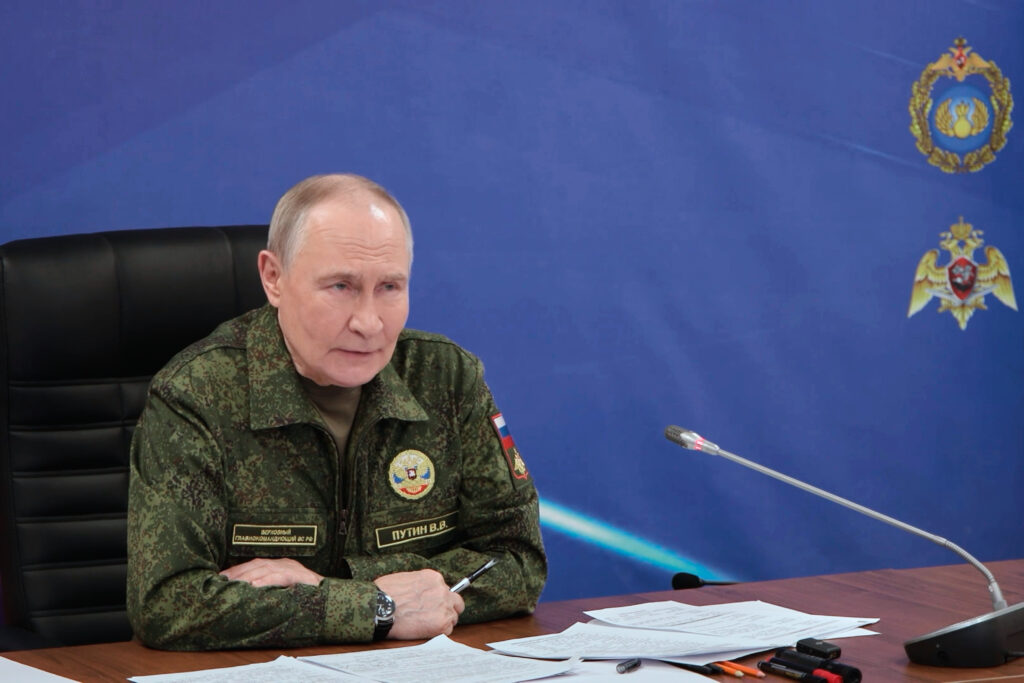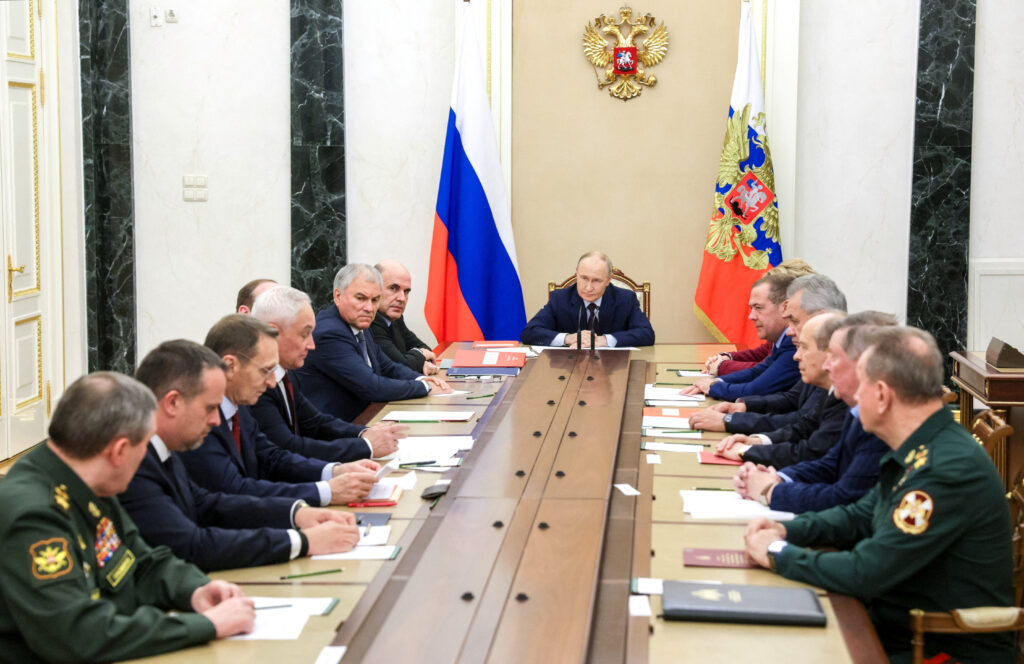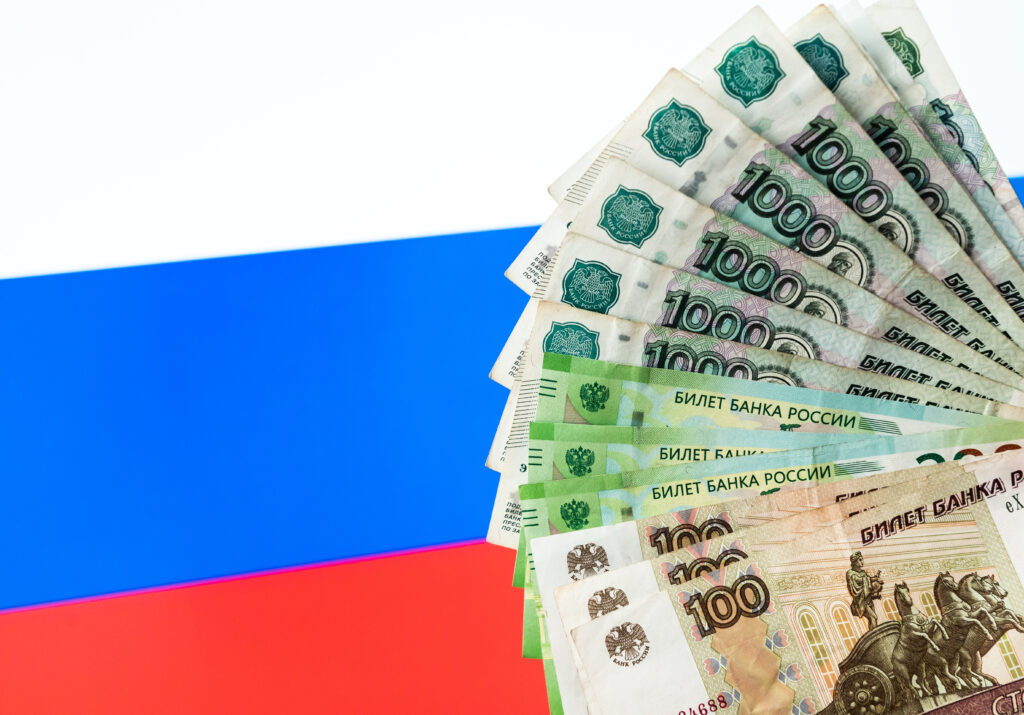The miserable quality of public administration in Russia has long been criticised by many experts. Government leaders are also aware of acute problems caused by sub-standard state structures. However, the recipes for improvement proposed so far fail to address the key issues underlying the country’s political system. Therefore, the useful measures promoted by both the central government and individual ministries in Russia, which may be collectively described as 3D: deregulation, digitalisation and decentralisation, can be seen, at best, as substitutes for real reforms. They can only improve the quality of Russian state structures if they become part of a broader, more fundamental change involving a 4D solution, with public administration reforms being accompanied by political democratisation. However, success on this path is by no means guaranteed since democratisation is a necessary yet insufficient condition for improving the quality of the state.
Why is the 3D plan not working?
In my recent book and articles I characterised the governance mechanism in Russia as «bad governance». The political and economic system is largely based on rent-seeking by ruling groups and their associates. To put it very crudely, they govern Russia in order to steal as much as possible for as long as possible. However, it would be wrong to reduce public governance in Russia to these phenomena alone. In order to avoid failures in governance that may lead to catastrophes, or even loss of control over the situation in the country, the ruling groups need a kind of «fool-proofing», which they think can be guaranteed by skilled professionals, i.e. technocrats. Thanks to technocrats’ efforts in certain areas, some policies in Russia are being implemented quite effectively, and some government projects and programmes are even showcased as «success stories». Technocrats sometimes help to prevent the situation in the country from deteriorating dramatically, but their ability to improve the quality of public administration under Russian authoritarianism is clearly limited. Moreover, the authorities strive to prevent changes in the political status quo at all costs, which thwarts many good ideas about improving the quality of the state. Therefore, the proposed measures lead, at best, only to partial and/or temporary improvements and, at worst, trigger a turn from bad to worse.
The word «deregulation» was embraced by the Russian leaders in 2019, when the then Prime Minister Dmitry Medvedev announced his intention to launch a «regulatory guillotine» in Russia, designed to abolish a myriad of outdated regulations and thus remove multiple barriers to entrepreneurial activity. Mishustin’s government continued to head in the same direction, but the results of its policy were far less rosy. First of all, it turned out that business people were primarily interested in abolishing environmental restrictions, initiating a number of amendments that triggered protests among environmental activists (in 2020, the environmentalists succeeded in blocking the most objectionable proposals to develop land within nature parks). Secondly, contrary to the much hyped deregulation, the screws were tightened and a large wave of new prohibiting regulations were adopted, such as the law on educational activity, which builds up high barriers against dissemination of knowledge (the implementation of this law has been delayed, but not halted altogether).
At Riddle, we recently discussed the problems of digitalisation. In this sphere, on the one hand, members of interest groups connected to the authorities benefit from new opportunities while, on the other hand, the desire to harness new technologies at the service of authoritarianism (the introduction of electronic voting and digital mechanisms to control citizen behaviour) renders similar effects. Therefore, digitalisation alone does not help the state to entrench evidence-based best practices in public administration but, rather, it is used as a tool to maintain the status quo within bad governance.
Finally, decentralisation, understood as the policy to delegate resources and powers to the lower levels of the «vertical power system», from the federal centre down to regions and municipalities, provides no incentives to improve the quality of governance at the sub-national level within the current regime. The COVD-19 pandemic demonstrated this amply: heads of all levels of government sought to conceal the scale of the disaster and were reluctant to make efforts to contain the spread of the disease. The incentives given by the Kremlin to the officials are driven by the desire to win election votes at all costs, not by a concern for the prosperity of the territories in their charge (as opposed to countries like China, where the career prospects of provincial leaders depend mostly on their achievements in governance). As long as political loyalty of the lower levels of the power structure is much more important than effective governance in the eyes of the Kremlin, decentralisation cannot be expected to bring qualitative changes for the better.
Why is 4D not a cure-all?
Within the current political regime in Russia, all components of the 3D solution serve as substitutes for genuine reforms of the country, capable of halting poor governance. But what kind of new things will the 4D model, involving political democratisation, free elections and independent media, bring to governance? Most likely, a change in the political regime would curb the most glaring manifestations and effects of the current governance model in Russia, associated with corruption and malpractices. This may happen partly because some of the former beneficiaries of bad governance will be moved away from sources of rent, partly because the new ruling groups that will come in the stead of the current ones will be forced to revise their priorities one way or another, inevitably casting a blow to the formal hierarchies and informal networks established within the power structures, at least in some spheres and some areas of governance. But what if a change of regime in Russia replaces one bunch of «crooks and thieves» with another while keeping the rules of bad governance unchanged?
We must realise that systematic governance reforms in a democratised environment will almost inevitably entail very high costs. We can try and form an opinion on this scenario for Russia by looking, for instance, at the neighbouring Ukraine, which has faced numerous problems since Viktor Yanukovych was ousted in 2014. Although Ukraine is an electoral democracy (with some provisos regarding Crimea, annexed by Russia, and Donbass, which remains outside the control of the central government), the country’s progress towards higher quality of governance has been rather modest. The post-Yanukovych Ukraine has demonstrated strong continuity of former and current elites and their informal networks, as well as weak domestic political pressure from reform-minded members of the public. As a result of this combination, it has become fundamentally impossible to renew the state apparatus and undertake major reforms of its most important constituents, such as the judiciary and law enforcement agencies.
In order for Russia to become «beautiful in the future», it will need not just free elections and independent media, but also an effective and capable government that can clean up the havoc wreaked by its predecessors, but also create new incentives for successful development in the relevant areas of governance within a fairly short time in order to improve the quality of governance. However, this will not be easy to do within democratisation processes since many interest groups that lose out as a result of changes in official policy may openly dissent, mobilising political support. For example, the counter-sanctions on foodstuffs imposed by the Russian government in 2014, which resulted in rising prices and declining food quality, will not be easy to lift in conditions of democratisation: the beneficiaries of the counter-sanctions in agriculture and the food industry will bend over backwards to prevent imported agricultural produce from entering the Russian market. There are also other potential victims of bad governance (e.g. the security forces) who are capable of mobilising firm resistance against reforms. And it is far from certain that the new Russian leaders will have the political will and capacity to carry out systematic reforms under such circumstances. In other words, while democratisation is a necessary precondition for restricting poor governance, it does not in itself create a sufficient milieu for it to be curbed.
However, there is also some good news. Over the last decades, Russia has developed a highly skilled expert community, capable of proposing specific, well-considered measures to reform many areas of governance and implement effective policies in various sectors. Contrary to popular stereotypes, the quality of the Russian apparatus in many government agencies is far from poor: there are many competent technocrats out there, able and willing to implement the necessary reforms. However, if the democratisation of Russia and the reforms of the state structures get delayed for many decades, replaced by poor substitutes, this potential is likely to go to waste. This, in turn, could mean that the degradation in Russia’s state structures would reach an enormous scale where bad governance would become irreversible and, at some point, Russia could face what the Soviet Union faced towards the end of perestroika, when the existing state turned out to be incapable of changing anything for the better: the only option was to dismantle it. This prospect can hardly be seen as positive for either Russia or its citizens.
*This article is part of the ‘Reforms’ series prepared by Riddle in partnership with Reforum project.









